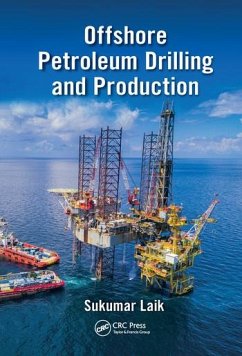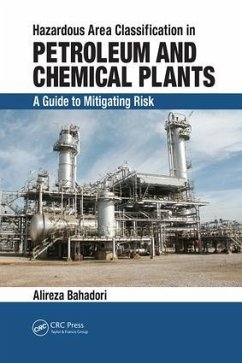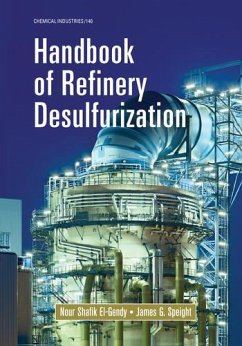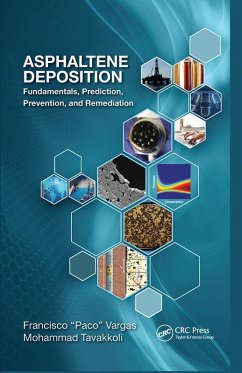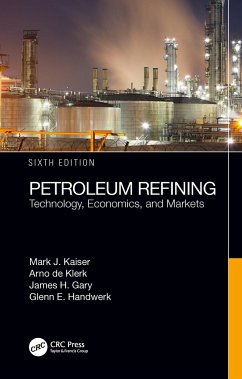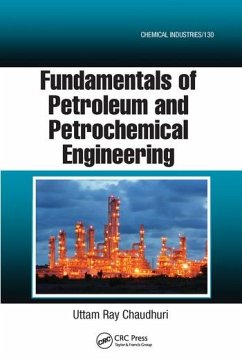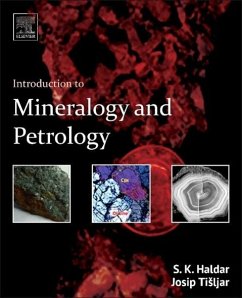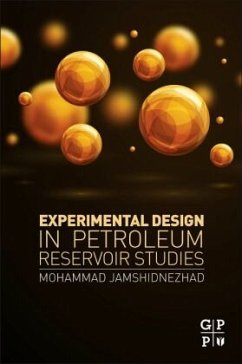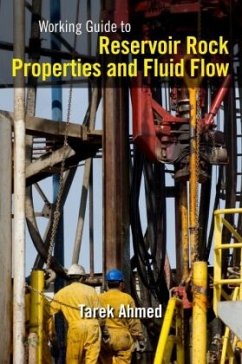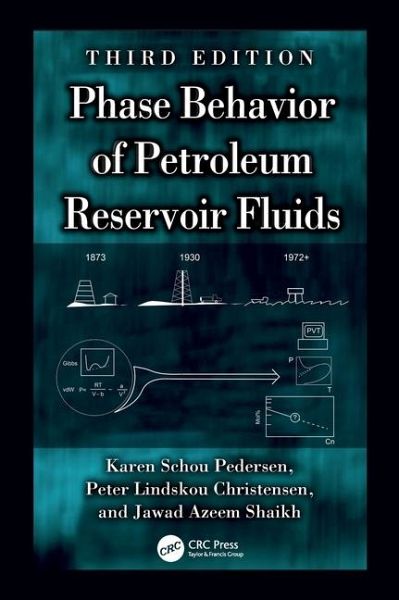
Phase Behavior of Petroleum Reservoir Fluids
Versandkostenfrei!
Versandfertig in 6-10 Tagen
138,99 €
inkl. MwSt.
Weitere Ausgaben:

PAYBACK Punkte
69 °P sammeln!
Developed in conjunction with several oil companies using experimental data for real reservoir fluids, Phase Behavior of Petroleum Reservoir Fluids introduces industry standard methods for modeling the phase behavior of petroleum reservoir fluids at different stages in the process. Keeping mathematics to a minimum, this book discusses sampling, characterization, compositional analyses, and equations of state used to simulate various pressure-volume-temperature (PVT) properties of reservoir fluids. The Third Edition has been updated throughout.Reflects advances in equation of state modeling for...
Developed in conjunction with several oil companies using experimental data for real reservoir fluids, Phase Behavior of Petroleum Reservoir Fluids introduces industry standard methods for modeling the phase behavior of petroleum reservoir fluids at different stages in the process. Keeping mathematics to a minimum, this book discusses sampling, characterization, compositional analyses, and equations of state used to simulate various pressure-volume-temperature (PVT) properties of reservoir fluids. The Third Edition has been updated throughout.
Reflects advances in equation of state modeling for reservoir fluids and CO2-rich fluids
Presents association models along with non-classical mixing rules for handling fluids with aqueous components
Has an extended coverage of reservoir fluid communication, energy properties, and asphaltene precipitation
Provides practical knowledge essential for achieving optimal design and cost-effective operations in a petroleum processing plant
This book offers engineers working in the energy sector a solid understanding of the phase behavior of the various fluids present in a petroleum reservoir.
Reflects advances in equation of state modeling for reservoir fluids and CO2-rich fluids
Presents association models along with non-classical mixing rules for handling fluids with aqueous components
Has an extended coverage of reservoir fluid communication, energy properties, and asphaltene precipitation
Provides practical knowledge essential for achieving optimal design and cost-effective operations in a petroleum processing plant
This book offers engineers working in the energy sector a solid understanding of the phase behavior of the various fluids present in a petroleum reservoir.





